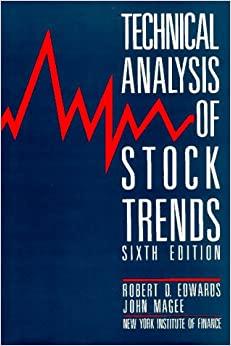Question
1. Say a Sale of $1,000 of merchandise is booked on the Income Statement for June. The merchandise was shipped to the buyer in June.
1. Say a Sale of $1,000 of merchandise is booked on the Income Statement for June. The merchandise was shipped to the buyer in June. The buyer of the merchandise has 60 days to pay. In that case, no Cash is received by the seller in June. Instead, Accounts Receivable increases by $1,000 on the sellers Balance Sheet. This Sale flows through to the seller's Net Profit in June, even though no Cash is received.
Net Profit is "accounting profit" because the $1,000 is booked as Sales at the time of sale in June, according to accounting rules.
Group of answer choices
a. The effect is that the seller's Cash Flow is higher than Net Profit in June,
b. The effect is that the seller's Cash Flow is lower than Net Profit in June
c. The effect is that the seller's Cash Flow is identical to Net Profit in June
2. Say, the company incurs an Expense of $5,000 by purchasing a new computer in December. The company receives the new computer in December. If the computer seller allows 60 days to pay, then no Cash has left the buyers bank account in December. The buyer books this $5,000 as an Expense on the Income Statement in December. This Expense lowers the buyer's Net Profit in December, although no Cash is paid out in December. Accounts Payable increases by $5,000 on the buyers Balance Sheet in December.
Net Profit is "accounting profit" because the $5,000 is booked as Expense at the time of purchase in December, according to accounting rules.
Group of answer choices
a. The effect is that the buyer's Cash Flow is higher than Net Profit in December
b. The effect is that the buyer's Cash Flow is lower than Net Profit in December
c. The effect is that the buyer's Cash Flow is identical to Net Profit in December
3. Depreciation is a non-cash Expense booked in the Income Statement, which lowers Net Profit. When you see Depreciation listed on an Income Statement...
Group of answer choices
a. The effect is that Cash Flow is higher than Net Profit.
b. The effect is that Cash Flow is lower than Net Profit.
c. The effect is that Cash Flow is identical to Net Profit.
Step by Step Solution
There are 3 Steps involved in it
Step: 1

Get Instant Access to Expert-Tailored Solutions
See step-by-step solutions with expert insights and AI powered tools for academic success
Step: 2

Step: 3

Ace Your Homework with AI
Get the answers you need in no time with our AI-driven, step-by-step assistance
Get Started


